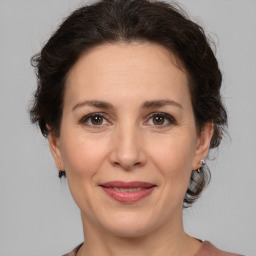This assessment will cover following questions:
- Critically analyse the health economic and health economic methodologies and its role in evaluating public health policy formulation and decision making.
- Examine the basic principle of governance and suggest ways that help to improve health and reduce inequalities by using good governance.
- Analyse the difference and various functions of health service financing.
Introduction
The selected article is based on the exercise intervention and its effectiveness in reducing cancer-related fatigue in patients. It is necessary for care professionals to provide exercise activities and other relevant procedures which are helpful to improve the health status of an individual suffering from different kinds of cancer. However, it is observed that cancer patients usually feel weak and uncomfortable which negatively impacts their process of overcoming health problems and reduces recovery speed. In addition to this, the programme of 18 weeks includes exercise for patients suffering from colon and breast cancer in terms of improving their medical condition properly. It is analysed that such programmes are required to be organised in a more effective as well as efficient manner to gain cost-effectiveness by implementing the given intervention for the well-being of patients. Moreover, physical activity is helpful to boost the activeness of people which makes them feel comfortable and follow their medication routine in order to become disease-free (Cramer and et. al., 2016). It has been analysed that cancer is of different types such as carcinomas, sarcomas, leukaemias and lymphomas. Initially, the carcinomas begin to form in skim or tissue over the surface of internal organs as solid tumours which include lung, colorectal, breast and prostate cancer. Secondly, sarcomas start from connecting tissues and develops in muscles, nerves, joints, tendons, blood vessels, lymph vessels, cartilage, boner or fat. Thirdly, leukemia is known as a cancer of blood where blood cells change and grow uncontrollably which consists of acute or chronic lymphocytic leukaemia and acute or chronic myeloid leukaemia. Furthermore, lymphomas can be considered as a cancer of the lymphatic system which is a network of glands and vessels. It has two types Hodgkin lymphoma and non-Hodgkin lymphoma. The selected article has analysed that intervention of physical exercise programmes is helpful in reducing fatigue in patients with breast and colon cancer respectively.
Need to Consult Directly With Our Experts?
Contact UsOn the other hand, it has been evaluated that the role of networks established by care professional teams is responsible for creating effective planning to improve patient outcomes. It is necessary for health organisations to connect with each other so that they can help one another in emergency situations to deal with people suffering from breast and colon cancer (Wu and et. al., 2017). Meanwhile, healthcare practitioners and social care professionals should perform collaboratively to provide appropriate care services for the welfare of patients. However, the principles of clinical governance can be described as a process of quality assurance which helps to understand that desired standards of care are maintained and improved achieving better outcomes. It includes that medical professionals should follow relevant pillars of clinical governance while implementing exercise programmes for cancer patients such as Information & IT, Risk management, audit, education & training, effectiveness of clinical care, staff management and patient & public involvement. Moreover, it has been analysed that evidence-based practices should be applied in clinical practices to gain assurance of attaining appropriate patient outcomes (Chambers, Rogers and Boath, 2016). It is necessary for care professionals to adopt effective techniques which are already been studied and proved by investigation they be beneficial for cancer patients. Furthermore, it is very important to attempt a trial and study on the intervention of physical exercise to reduce the fatigue of people suffering from colon and breast cancer before implementing it in clinical procedures. It is favourable to avoid negative results and ensure the accuracy of the process to improve the condition of individuals.
Study validity
Did the study address a clear question?
Yes, this study addresses a clear question on the cost-effectiveness of exercise programmes for colon cancer patients who are undergoing chemotherapy but not for breast cancer patients. The survival rate of breast cancer patients is increasing and fatigue is the most common side effect of this cancer. Several analyses reported that the exercise approach has focused on effectiveness but it is also cost-effectiveness. So, to make the intervention effective to the cancer patient the evaluation of health economic is dependent on the decision-making. In order to analyse the cost-effectiveness, the randomised controlled trial was conducted to help the patient during the exercise intervention. They analyse the cost-effectiveness of 6 months of exercise intervention (Islam and et. al., 2017). After that, the physical activity during cancer treatment (PACT) analyses the 18 weeks of cost-effectiveness of interventions that are applied after the diagnosis of cancer. The PACT program is performed according to the social perspective to measure the economy of the organisation. The help of PACT methodologies, it helps the colon patient to prevent fatigue side effects. In their methods, they use 1 hour of exercise twice per week for approx 18 weeks and the outcome of this is that it can prevent the effect of fatigue from the cancer patients.
Is the economic evaluation valid?
The economic evaluation in the PACT study is cheaper and cost savings as the health of colon cancer is effectively increasing from the intervention of exercise. It increases the health of colon cancer patients on a much higher level who are suffering from fatigue. The framework of the cost in less than 1 year consists of the evaluation of missing cost data with per cost evaluation. This can be implemented with the health method which is the Markov chain Monte Carlo method, which takes access to all costs including the age and gender of any group. The economic evaluation is valid as it measures the loss of productivity and it is measured every 4 weeks including the patient history. The cost of PACT was evaluated with the micro-costing method. The decision-making in providing the cost to physiotherapists was determined. The remaining costs were determined between the hospitals and research groups. The economic evaluation of cost from the intervention of exercise increases the cost savings of up to € 4321. The cost-effectiveness of the exercise intervention is up to 2%. With this cost-effectiveness, the rate of consequences in exhibiting the role of initiative in decreasing the effect of fatigue can occur. The consequence of this is that 204 patients of breast cancer and 33 of colon patients are undergoing this treatment apart from chemotherapy. However for breast cancer, there is not much cost-effectiveness in providing the exercise intervention.
How were the costs and consequences assessed and compared?
The cost and consequence can be compared between breast and colon cancer patients in order to provide the intervention of exercise. The costs were evaluated to prevent the cancer patients from fatigue. There are costs initiated to the professionals to provide the exercise to the patients twice a week. Their intervention includes 1 hour of aerobic exercise and opposition exercise. However, for breast cancer, the results of cost-effectiveness did not show. The comparative in cost-effectiveness depends on the cost-saving from the intervention and on the quality-adjusted life years. The ratio of cost savings shows an improvement in QALY of 0.03%. The incremental cost of exercise and physical fitness intervention is not much higher. Breast cancer patients do not attain the effectiveness of exercise intervention which causes a low outcome of a decrease in fatigue. This also compares because of the outpatient of 7 hospitals in the Netherlands from which the majority of general hospitals is 6 and the number of academic hospitals is 1. The cost-effectiveness can be compared with the consequences of the 9-month intervention period with the random study of PACT. The cost-effectiveness of breast cancer and colon cancer patients is different. The cost increment for colon patients is higher than the breast cancer patients but the consequences of the intervention are higher in colon patients than the breast cancer.
Study results
The selected study is all about the cost-effectiveness analysis in an 18-week exercise programme for patients with breast and colon cancer undergoing adjuvant chemotherapy. It is a kind of randomised PACT study which has been carried out with the help of conducting trial of patients and understanding its effects on them. However, the aim of this investigation is to evaluate whether the intervention of physical exercise is effective in order to decrease the fatigue condition of people who were suffering from cancer of colon and breast (Van and et. al., 2016). The proper research has been conducted with the aim of assessing the cost-effectiveness of the 18-week physical activity during cancer treatment (PACT) intervention for patients with breast and colon cancer. It has been identified that the PACT trial in a group of people provided beneficial effects in regard to physical fitness as well as fatigue. In the context of this study, the design considered is the randomised controlled multicentre PACT study regarding the cost-effectiveness with a time horizon of 9 months. The patients selected for the given trial are from outpatient clinics from around 7 hospitals in the Netherlands of which 6 are general hospitals and the rest of 1 is an academic care organisation. The sample size of participants consisted of 204 patients who suffered from breast cancer including 33 with colon cancer and they were undergoing adjuvant treatment or chemotherapy. On the other hand, the intervention selected for conducting the investigation was supervised 1 hour aerobic and resistance exercise which was carried out twice a week or usual care. This study is about to conduct an analysis of the impact of physical exercise on reducing fatigue in cancer patients along with improving their health condition. It is required to evaluate and measure the overall outcomes related to quality-adjusted life years, cost and incremental cost-effectiveness ratio regarding organising the physical exercise programmes. The results of the study of the selected article showed that intervention of physical exercise is cost-effective in the case of colon cancer (Van Zwanenberg and Harrison, 2018). It indicates beneficial effects along with incremental cost savings of around €4321 and QALY improvements of 0.03. However, it is also evaluated that this intervention is cheaper and most effective in the case of colon cancer patients as it is favourable for improving their health condition. Contrary to this, this intervention is not cost-effective for breast cancer and in this case the incremental costs were €2912, and the incremental effect was 0.01 QALY. At a Hutch threshold value of €20…000 per QALY, the probability that the intervention is cost-effective was 2%.
Need Help With Essay Writing?
Get Custom Essay Written by a Professional Writer on any for TOPIC.
Get HelpApplication to practice
Does the study present information in a particular way to aid decision-making?
Yes, the study presents information in a very particular manner so as to assist in making peculiar and essential decisions. However, the physical activities were not effective in patients with breast cancer. Thus, a prior and clear decision can be made through such results that physical exercise has no positive result in controlling or lowering the condition of fatigue. The incremental cost-effectiveness ratio (ICER) was intended as the distinction in costs divided by the difference in QALYs among the involved as well as manageable groups using a bootstrap analysis with few simulations. From such type of analysis, a cheap as well as cost-efficient level was shaped, results were produced according to the intervention and analysed whether it is more or less pricey and more or less effectual when compared to the general medication and care. Moreover, cost-effectiveness acceptability curves (CEACs) are presented to demonstrate the decision uncertainty, which further aids in making and comparing the made decision. The potency of this research is multi-dimensional, casual and practical propose.
When the study was compared to the explanatory trials, the decision-making policies were more reflected by the daily test and clinical inputs. The number of patients with cancer is increasing day by day and a large number of individuals are surviving from various cancers and fighting every day. In this case, the need to adopt the most affordable and economically cheap way has to be invented for improving the symptoms and conditions of cancer patients. Therefore, such information guides in making decisions that what other cheap as well as cost-effective methods can be adopted other than physical exercise to comfort such victims. Various decisions regarding the treatment of breast cancer can be taken and different therapies like teletherapy and radiation therapy and several surgeries and medication may be used to comfort the victim.
Are the results applicable to the scenario described above? How might they be applied?
The particular study is all about the cost-effectiveness analysis in an 18-week exercise programme for patients with breast and colon cancer facing adjuvant chemotherapy. A certain type of random PACT study which particularly done to determine the effects either positive or negative on the patients suffering from breast and colon cancer. Moreover, the study majorly focuses on examining the effects of physical exercise and identifying whether such practice aids in lowering the condition of fatigue particularly in the victims of colon as well as breast cancer. At the end of the study it has been concluded that the effects of physical exercise were only effective in colon cancer and fatigue conditions improved to a great extent in the patients suffering from colon cancer.
The urban population in the United Kingdom which has been observed to be greatly affected by colon and breast cancer can be eased by applying the cheap and cost-effective techniques which is used in this study. It has been observed that breast and colon cancer incidence rates are very high in such areas and some communities. Thereby, such results can be applied to the urban population of the UK on those who are suffering from colon cancer. The public health practitioners who are working in cancer organisations or in non-governmental organisations, such results can be utilised in promoting as well as managing the disease. Such measures of treating the fatigue condition in people suffering from colon cancer can also be employed in enhancing the positive outcomes and improving the techniques for preventing and overseeing the cancer.
How do the findings fit with other similar studies?
The findings which were found in this study were regarding the fatigue situation of the folks who were suffering from colon and breast cancer. The appropriate research has been conducted by having an aspiration to assess the cost-effectiveness of the 18-week physical activity during cancer treatment (PACT) intervention for patients with colon and breast cancer. It has been observed that the PACT path in a set of people furnished advantageous effects with respect to physical fitness as well as lowering fatigue.
As per this study, the aim considered is the randomised guarded multi-dimensional PACT examination on the subject of cost-effectiveness within a time period of 9 months. Other findings with a similar study which have been found with respect to this research was a randomised controlled trial (RCT) which was utilised while researching the cost-effectiveness and efficiency of a 6-month home-based exercise intervention in the victims of breast cancer undergoing the same adjuvant therapies. Another study reflected that the patients who were diagnosed with early breast cancer were subjected to a 12-week programme of exercise which was fully supervised by skilled and professional health and social care providers. During this, a realistic randomised controlled potential trial was designed for research on 203 women, where the women were asked to get warm up in 5 to 10 minutes in class then 20 minutes of exercise were followed by a relaxation period. The outcomes were measured by functional assessment of cancer therapy (FACT). The following research concluded that the group which was constantly supervised rendered psychological and functional benefits subsequent to 12 weeks of intervention. Thus, the policy makers as well as clinicians should include more opportunities of exercise and physical activities in cancer cure services.
Also Read - Different Determinants of Health
Conclusion
From the above report, it can be concluded that it is obligatory for care providers to offer exercise setups as well as actions and other significant measures which are accommodating to the health condition of a person distressed from diverse sorts of cancer. This research concluded that the cost-effectiveness of exercise programmes for colon cancer patients who are receiving chemotherapy was successful but not suitable for breast cancer victims. It has been evaluated that the economic evaluation in the PACT study is less pricey as the health of the colon cancer is successfully mounting from the involvement of exercise. The study aids in making decisions regarding the treatment procedure for colon and breast cancer.
For all kinds of assignment help contact us.


 Company
Company













